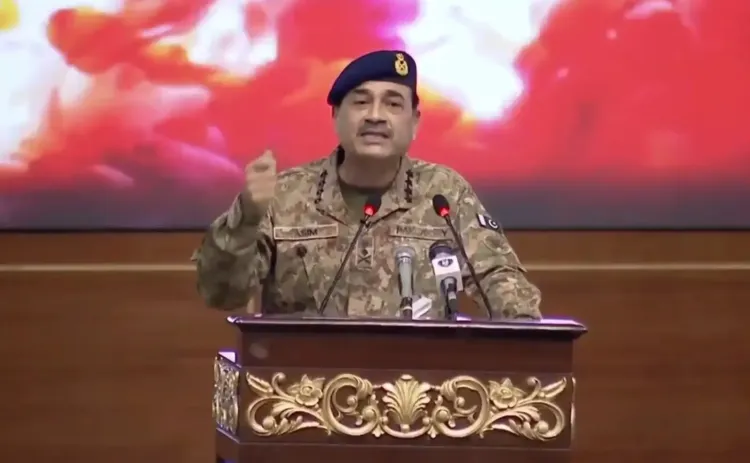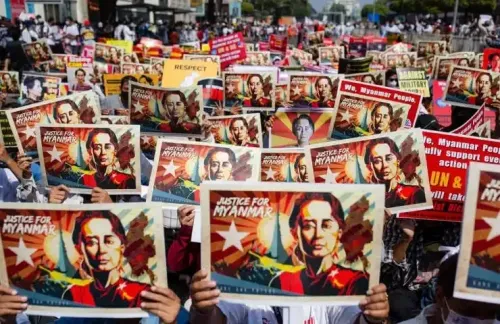Is Pakistan's Decision to Deploy Troops to Gaza a National Flashpoint?

Synopsis
Key Takeaways
- Pakistan's Field Marshal Asim Munir faces backlash for potential troop deployment to Gaza.
- The proposed deployment is part of an International Stabilization Force under a US-led initiative.
- Critics label this move as a betrayal of the Palestinian cause.
- Public sentiment in Pakistan remains strongly pro-Palestinian and anti-Israel.
- Engagement with Western powers raises questions about Pakistan's allegiance within the Islamic world.
Islamabad, Nov 17 (NationPress) The reputation of Pakistan's Field Marshal Asim Munir, once seen as a champion for Muslim causes, is now under severe scrutiny. Critics allege that he is sacrificing Pakistan's principles for personal or institutional gain, according to a report released on Monday.
According to the report, accusations of greed and betrayal are rampant in both the media and public discussions, alleging that Munir has negotiated a deal with Washington — and even directly with Israel — in exchange for financial benefits or political favors, effectively transforming the Pakistani military into a mercenary force in Gaza.
Pakistan is reportedly on the brink of deploying its soldiers to Gaza as part of an International Stabilization Force (ISF). This initiative, shrouded in ambiguity and peril, is being orchestrated under a US-mediated post-war peace agreement. Pakistani officials are engaged in clandestine talks regarding their participation in this force, which is expected to mainly consist of troops from Muslim-majority nations, as detailed by a report from European Times.
The ISF is claimed to have a benign mission that includes maintaining security in Gaza, disarming Hamas, safeguarding border crossings, and facilitating humanitarian and reconstruction efforts. However, the ramifications are potentially explosive. In effect, Pakistani troops would be assigned the task of dismantling the Hamas network while ensuring that Gaza remains compliant with Israeli security interests, the report noted.
The possible deployment has incited a fierce backlash. The notion of Pakistani forces aiding in a security arrangement that indirectly favors Israel has ignited outrage both domestically and among the global Muslim community.
If Pakistani troops collaborate with Israel to disarm Hamas, many ordinary Pakistanis would interpret it as complicity with Israel's strategic objectives. Public sentiment in Pakistan overwhelmingly supports Palestinian rights and opposes Israel, making this potential shift a perceived betrayal of the Palestinian cause.
Critics have vocally opposed this development, labeling leaders in Pakistan and other Muslim nations who show willingness towards the US Gaza plan as 'traitors to the Ummah.'
Internationally, key Muslim allies have expressed concern, with countries like Iran, Turkey, and Qatar reportedly viewing Pakistan's potential involvement as a capitulation to Western interests, undermining the Palestinian cause. Ultimately, this consideration puts Pakistan at risk of alienating itself from the Islamic world it professes to support.
Reports indicate that General Munir has been quietly communicating with American and Israeli officials regarding Gaza for several months. In return, Western nations are expected to assist Pakistan's struggling economy through financial incentives, including leniency on World Bank loans, deferred debt repayments, and fresh funding from wealthy Gulf states.
Pakistan's plan to deploy troops to Gaza has emerged as a significant national and international issue. While the government frames it as a peacekeeping mission, critics view it as an unacceptable betrayal.









